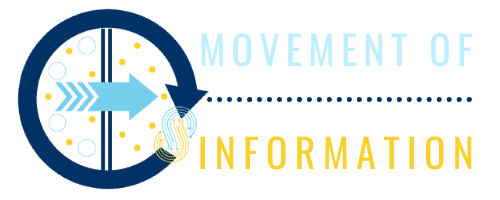Taxes are a fact of life. But, understanding them doesn’t have to be daunting. Whether you’re a first-time filer or an experienced taxpayer, it can be hard navigating the complex world of taxes and can feel overwhelming at times.

Ultimate Guide to Taxes
From deductions to credits and everything in between, it’s easy to get lost in the jargon and legalities. We may not be able to reduce your taxes like other professionals can, but we can help you better understand how they affect you.
That’s why we’ve created this ultimate guide – a comprehensive resource that covers everything you need to know about taxes in one blog post.
Types of Taxes
There are four main types of taxes.
The most well-known is income tax. It’s a tax on your earnings from employment, investments, and other sources.
Sales tax is a consumption tax that’s levied on the sale of goods and services. The federal government doesn’t have a national sales tax, but 45 states including Washington D.C. all have some form of statewide sales tax.
Payroll taxes are levied on wages and salaries to fund Social Security and Medicare. These are two social insurance programs that provide benefits for retirees, disabled workers, and their families.
Employers withhold payroll taxes from employee paychecks and also pay a portion themselves. The self-employed must pay the entire amount themselves.
Property taxes are local taxes that are levied on real estate – homes, land, and commercial buildings, and personal property – vehicles, boats, and jewelry.
How to File Your Taxes
Before you set about filing your taxes, you need to gather all of your documents pertinent to your taxes. This includes things like your W-2 form from your employer, any 1099 forms if you are self-employed, and any receipts for expenses that you plan on deducting.
Want to file your taxes yourself?
You can use online software like TurboTax or H&R Block. Alternatively, you can download the IRS forms and fill them out yourself.
Once this is all in hand and you have pressed ‘submit’ – you are now free and clear of the chaos!
Common Tax Deductions & Credits
Many people would like to reduce their tax bill. Whilst many people will strive to do this, there are a number of common deductions and credits that can help you achieve this.
The standard deduction is available to all taxpayers. It is classed as the simplest way to reduce your taxable income.
You can itemize your deductions. This will help you deduct a wide range of expenses. These will include mortgage interest, state and local taxes, charitable donations, and medical expenses.
The Child Tax Credit is available to taxpayers with dependent children under age 17.
The American Opportunity Tax Credit (AOTC) is a credit available to taxpayers who are paying tuition and other educational expenses for themselves or a dependent. The credit can be worth up to $2,500 per student.
Tips for Managing Your Tax Liability
Stay organized:
This is important for keeping track of your income, deductions, and expenses. Having everything in one place will make it easier to file your taxes and avoid mistakes.
Know the deadlines:
Make sure you know when your tax return is due and when any estimated payments are due. This will help you avoid penalties and interest charges.
Understand the tax laws:
The tax code can be complex, so it’s important to educate yourself on the basics. This way, you can maximize your deductions and minimize your liability.
Use tax software:
Tax software can help you prepare your return and find deductions that you may not have been aware of.
Get professional help:
If you’re unsure about anything related to taxes, don’t hesitate to seek out professional help. A qualified accountant can answer your questions and ensure that you’re compliant with the law.
International Tax Considerations
You’ll need to pay taxes on any income you earn in the country where your business is based. To clarify, you’ll need to pay U.S. federal income tax on any earnings if your business is based in the United States.
You may also be required to withhold taxes from employees’ wages if they are not citizens of the country where your business is based. With your business being based in the United States, and some of your employees not citizens, you will have to withhold federal income tax from their wages.
Final Thoughts on Tax Planning
The best way to approach tax planning is to consult with a professional.
Taking your time and developing a plan for your taxes is important.
You need to come at this from a proactive standpoint. You can minimize tax liability by following the correct protocols. You never know, you may just get a tax refund.









